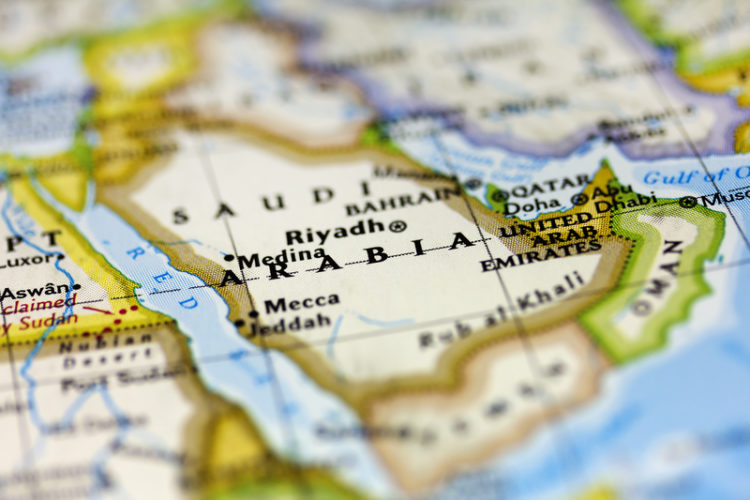
G7 leaders reaffirmed support for providing weapons and financial aid to Ukraine on Monday, including discussion of French President Emmanuel Macron’s suggestions for a negotiated peace, but the tightening diplomatic embrace between Chinese President Xi Jinping and Saudi Prince Muhammad bin Salman could undermine President Joe Biden’s influence.
The Saudi turn towards China is triggering a profound shift in international relations that will raise extraordinary challenges for American leadership in the Gulf and Middle East. It comes at a time when the need for some kind of peace in Ukraine, or at least a ceasefire or truce, and the prospect of a long war of attrition threaten to weaken the unified Western response to Russia’s invasion.
Although there are no signs currently in Kyiv and Moscow of readiness to talk, Macron points out that solutions can only be found through negotiations at some point because whatever the future, Russia will continue to exist and its security perceptions will have to be addressed.
Erosion of Biden’s influence over Prince Salman directly affects the Ukraine equations because Saudi Arabia and its Gulf allies are central to America’s diplomatic and security presence in the Middle East, which constitutes Russia’s near neighborhood.
Xi received a warm embrace with the full pomp and honors of a State visit last week, unlike Biden who got a cold shoulder when he visited the Prince last July. Salman refused Biden’s repeated requests to increase oil production to help reduce inflation in America and strengthen Democrat hands in the US midterm elections of 7 November.
Coming on the heels of those elections, Xi’s visit saw at least $30 billion in high technology sales to Riyadh and is a warning sign to the West. Prince Salman, who is often denigrated as a reckless human rights violator, is demonstrating that Saudi Arabia is now the indispensable power in the Middle East. Above all, he does not care about the grave consequences Biden promised after he supported Russia in preventing a significant increase in oil production.
This is a profound shift in attitude because Saudi Arabia has been a close ally of Washington for decades and has regularly used its power over world oil prices to protect American interests while providing billions of dollars in earnings for US companies working there. It is currently buying $100 billion in American weapons.
The Xi visit did not announce weapons sales to the Saudis but agreements were signed on nuclear energy, space exploration and both 5G and 6G telecommunications technology. However, a joint Saudi Chinese statement said that the two sides “emphasized their determination to strengthen cooperation and coordination in various fields of defense,” including sharing intelligence on counterterrorism.
Chinese media also reported after last month’s Air Show in Zhuhai that Riyadh had agreed to buy $4 billion worth of armed drones, hypersonic anti-ship ballistic missiles and other materiel from China.
Salman is taking the risk of incurring Washington’s wrath by cozying up to China, the country that Biden has declared to be America’s chief rival and whose rise as a military and technology giant Biden is trying to throttle using all means, including putting severe pressure on European allies to follow suit.
India, a rising friend being courted by Washington as an ally against China, is also receiving pressure to distance itself from Xi. Delhi is trying to skillfully navigate a safe path through these diplomatic minefields but the space available to maintain independent policies will become increasingly linked to relations with Saudi Arabia and the Gulf States.
Salman is in an ambiguous position. His country received $5.5 billion in investment and contracts from China in the first half of this year. China imported 51% of its oil needs last year from Arab states, including four-fifths of that from Saudi Arabia and other Gulf monarchies. Earlier this month, China signed an unprecedented 27-year agreement to buy liquefied natural gas from Qatar.
Yet, Salman is too deeply enmeshed with Washington for security guarantees and weapons and cannot walk too far into Beijing’s embrace. He is squeezing whatever value he can from tighter investment relations with Beijing to build a more resilient diversified economy less dependent on oil.
Friendship with Xi is very valuable because he does not sermonize about human rights and democracy and is keen to supply weapons and high-tech telecommunication technologies to the Saudis, to bring the entire Gulf within the fold of China’s influence. Within this perspective, Salman is trying to develop independent policy space away from Washington to become the hegemon in his region.
Photo 21327107 © Marcos Souza | Dreamstime.com
















